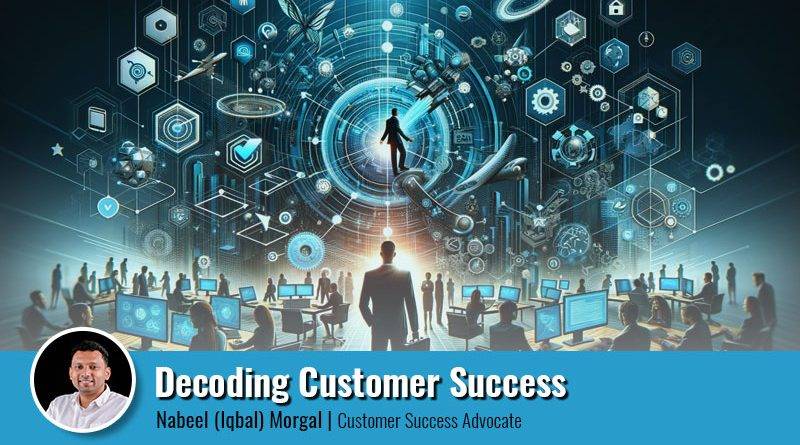Decoding Customer Success
Decoding Customer Success: Exploring specialized roles and upcoming trends
Customer success is a relatively new concept, particularly in the IT industry. Companies, especially IT firms, have recognized the importance of customer retention and have started incorporating customer success departments to achieve this goal. A simple Google trend analysis reveals that customer success began gaining popularity around 2010-2011 and has seen exponential growth since 2015.
Table of Contents
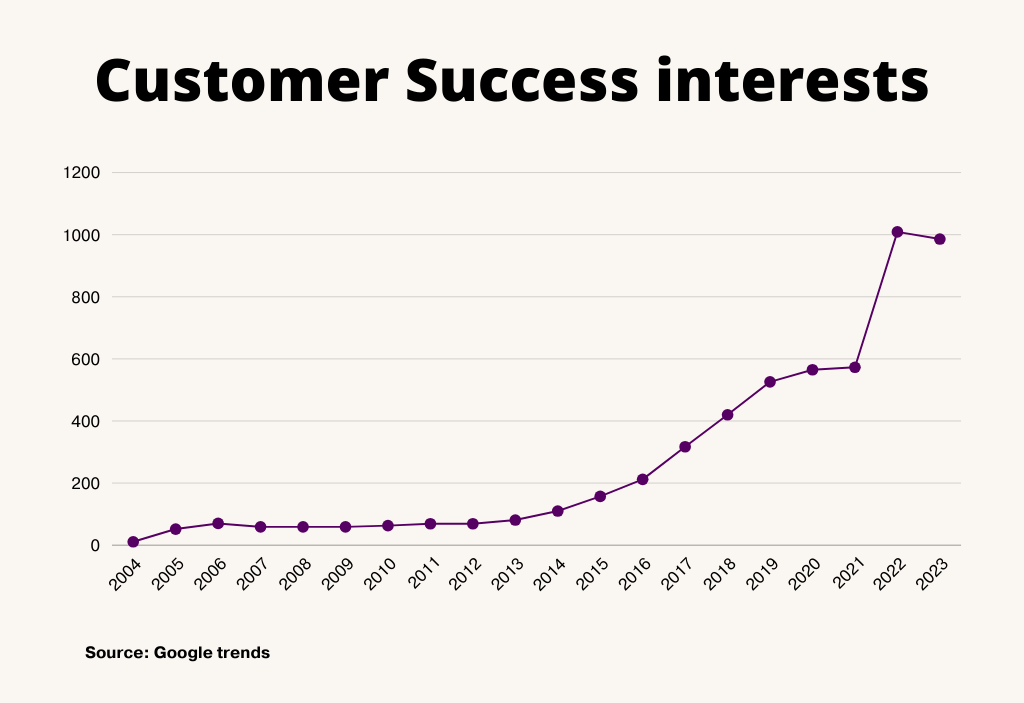
From a strategic perspective, customer success is a revenue generator. As a general rule of thumb, acquiring a new customer can cost five times more than retaining an existing one. Rather than spending money on expensive sales representatives, it is logical for companies to invest in customer retention goals.
“Your Job, if you're a customer success manager, isn't to make friends with your client. Your primary job is to CHALLENGE THEM, and get them to think, in order to make them MORE SUCCESSFUL.”
Don Peppers
Defining Customer Success: More Than Meets the Eye
According to Gartner, “Customer success is a method for ensuring customers reach their desired outcomes when using an organization’s product or service.” While this sounds simple, it is, in fact, quite complex. Over the years, customer success has evolved into many new roles or titles. This article explores various customer success-related roles that companies offer today. It aims to serve as a guide for job seekers, career transitioners, and business leaders looking to enhance their retention strategies.
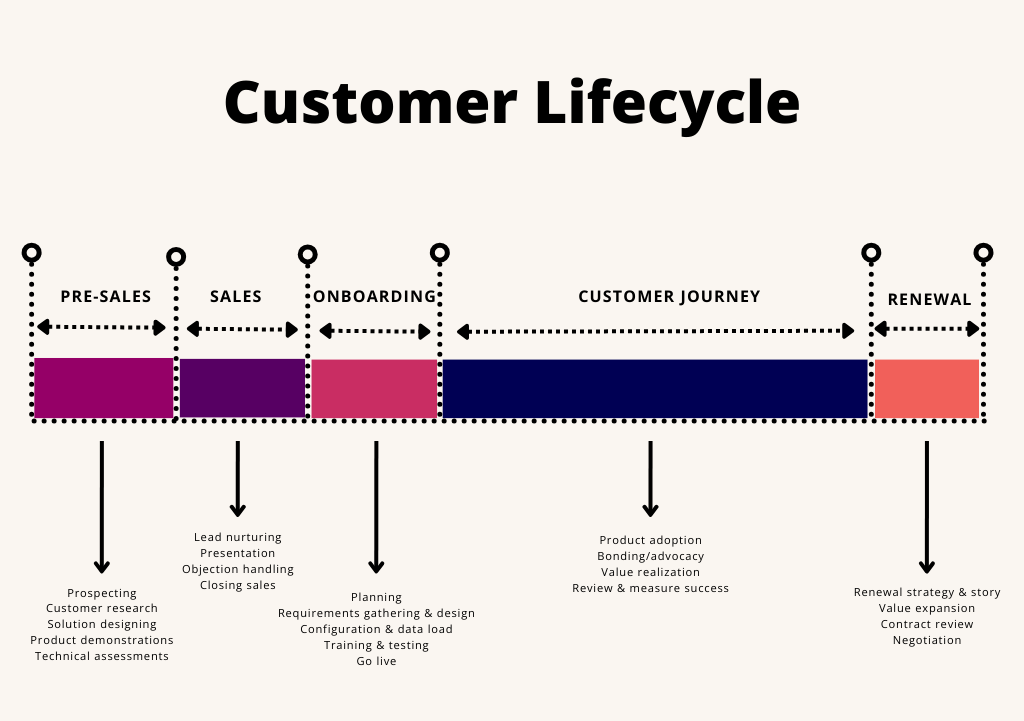
Customer Success vs. Account Management: Unveiling the Differences
One frequently asked question is how customer success differs from account management. Aren’t they the same? It is often mistaken that customer success management is the same as account management (or key account management when focused on a few strategic accounts). Account management has been around the tech world for quite some time, particularly in the era of on-premises software, where companies needed someone to collect annual contract revenues. Initially, sales reps were deployed for this task, but companies soon realized that sales reps needed to focus on acquiring new business rather than spending time on existing clients. Thus, account managers were deployed to handle post-sales activities for existing customers.
With the introduction of the SaaS-based monthly subscription model, revenue started to spread across the customer lifecycle. Companies realized that customers needed to see the value of the offering to retain them. This is a long-term engagement focused on problem-solving, unlike account management, which is centered on sales or revenues. This does not mean that CSMs do not have the responsibility of growing revenues. In many early-stage startups and SMBs, CSMs are the wholesale owners of the accounts they are assigned to, meaning they must work on value realization as well as growing the account through upsells and cross-sells.
However, as a company’s customer base expands and product offerings become more complex, management tends to introduce account managers to work alongside account owners to achieve retention objectives. As tech companies and client relationships evolved with new challenges, another role emerged: the Technical Account Manager (TAM).
Technical Account Manager: The Tech-Savvy Advocate
TAMs work closely with their customers and act as advocates for their technical needs. This role involves providing technical support, onboarding and training new customers, offering optimization solutions, and implementing performance improvement initiatives. TAMs generally do not have ownership of commercial aspects like renewals or upsells but focus on helping clients achieve their business objectives. They should be technically savvy while also being adept at customer relationships to anticipate and address challenges and handle escalations if necessary.
However, there is no hard and fast rule regarding TAM responsibilities. In some companies, they act as ‘advanced technical specialists,’ while in others, they have a broader scope of responsibilities, essentially making TAMs Customer Success Managers minus the responsibility of retaining the account.
Onboarding/Implementation Manager: The Transition Experts
Once the contract is signed, the next step is transitioning the new software from the customer’s existing process. This is a crucial event in the customer journey, as leadership eagerly anticipates new changes in their organization. Since change often encounters resistance initially, it brings a whole set of new challenges for both the customer and the software provider. This is where the process of onboarding or implementation becomes crucial and must be handled with care and attention. This is typically managed by Customer Onboarding Managers or Implementation Managers.
Onboarding and implementation seem similar, but there are subtle differences. By definition, onboarding involves educating the customer about the product, guiding them in integrating their existing processes with the new software, and building positive relationships with the stakeholders involved. On the other hand, implementation focuses more on the technical aspects of the transition process. It involves understanding the client’s business, making configurations, and deploying the software. While building relationships is also important, an implementation manager should focus on requirement gathering, project planning, testing, and customizing features.
In many companies, onboarding and implementation are used interchangeably, with one team handling all the responsibilities. This is because customers do not differentiate between such teams and do not want to deal with multiple people. It is usually in large enterprises where there is a clear distinction between onboarding and implementation roles. Such enterprises have well-defined processes for onboarding and implementation managers to help them achieve success.
Renewal Manager: The Guardians of Retention
A Renewal Manager is an extension of the account manager role, focusing on managing large volumes of renewal opportunities. They partner with Customer Success and Account Management teams to prepare and execute quarterly renewal plans. Renewal Managers often carry monthly and quarterly renewal and net retention quotas (similar to account management teams) and develop strategies to increase customer retention and reduce churn. While their role is similar to account management, some companies have specific differences in the key responsibilities of Account Managers and Renewal Managers
Upcoming Trends and Fancy Titles: Innovation in Customer Roles
As companies find innovative ways to engage their customers and drive retention, new roles are emerging, often with fancy titles. These roles are meant to streamline and bring more focus to retention strategies. Note that some titles might seem unique, but their roles and responsibilities generally fall under the roles we have already discussed. One emerging concept gaining popularity among many companies is Customer Experience (CX).
Customer Experience Manager: Crafting Memorable Journeys
Over the past decade, customer success has become a popular business strategy among many software firms. Simultaneously, there is increasing interest in Customer Experience (CX) Managers. Some may argue that CX is a basic responsibility of a CSM, so why is there a need for a separate team member handling CX? This is because customer success teams often focus on achieving customer outcomes, product adoption, managing escalations, and providing support, sometimes neglecting strategies to create a positive customer experience.
This is where a CX expert can add significant value by creating a great customer experience and driving customer loyalty. CX encompasses all interactions a customer has with a brand, from the website’s user interface to the tone of customer support emails. It involves creating a seamless and enjoyable journey for customers at every touchpoint, making them feel valued and appreciated.
CX Managers implement comprehensive customer experience strategies, collaborate with cross-functional teams to optimize customer touchpoints, and drive initiatives to improve customer satisfaction and loyalty. This role does not involve daily customer interactions but supports all client-facing teams in their interactions with customers.
Skills Mapping: Navigating the Job Market
While the roles discussed here provide a fair overview of various post-sales roles, companies offering these jobs may not always follow the same definitions. For example, some companies offer account manager roles with a stronger emphasis on business development or sales and less on account management activities. If you are a job seeker, you need to review job descriptions in detail to ensure they match your career aspirations and skills. The table below provides a fair idea of the skills required, but remember that all skills are important for a customer success manager.
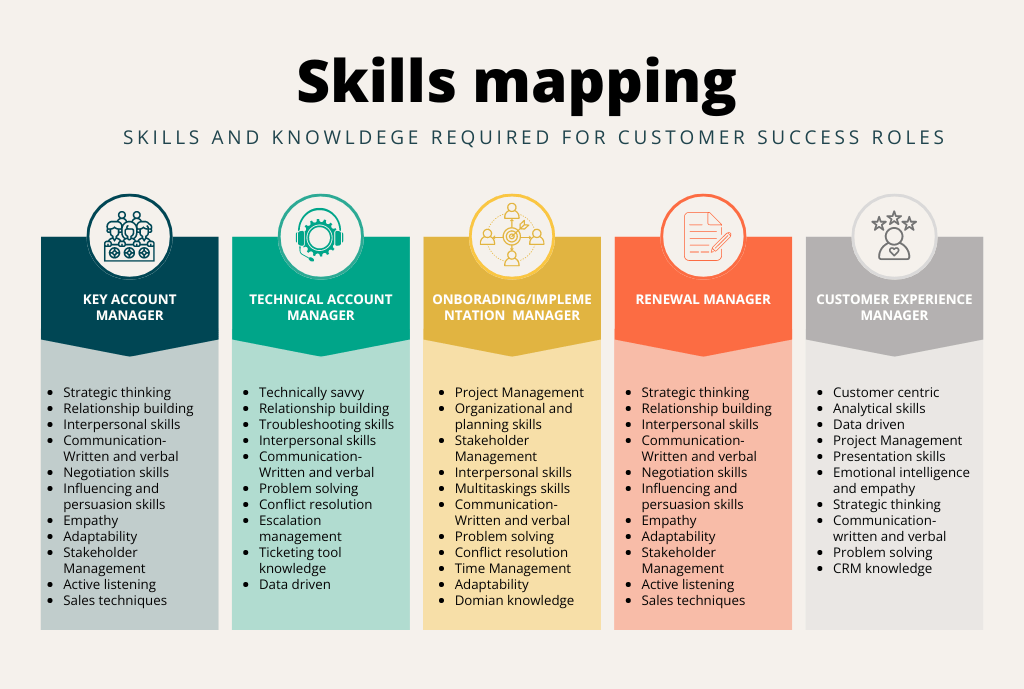
An overview of the current job market shows that the Key Account Manager role is still popular among companies compared to Customer Success Manager roles. Although responsibilities may overlap, the designation suggests that Account Managers hold a strong position in the market.
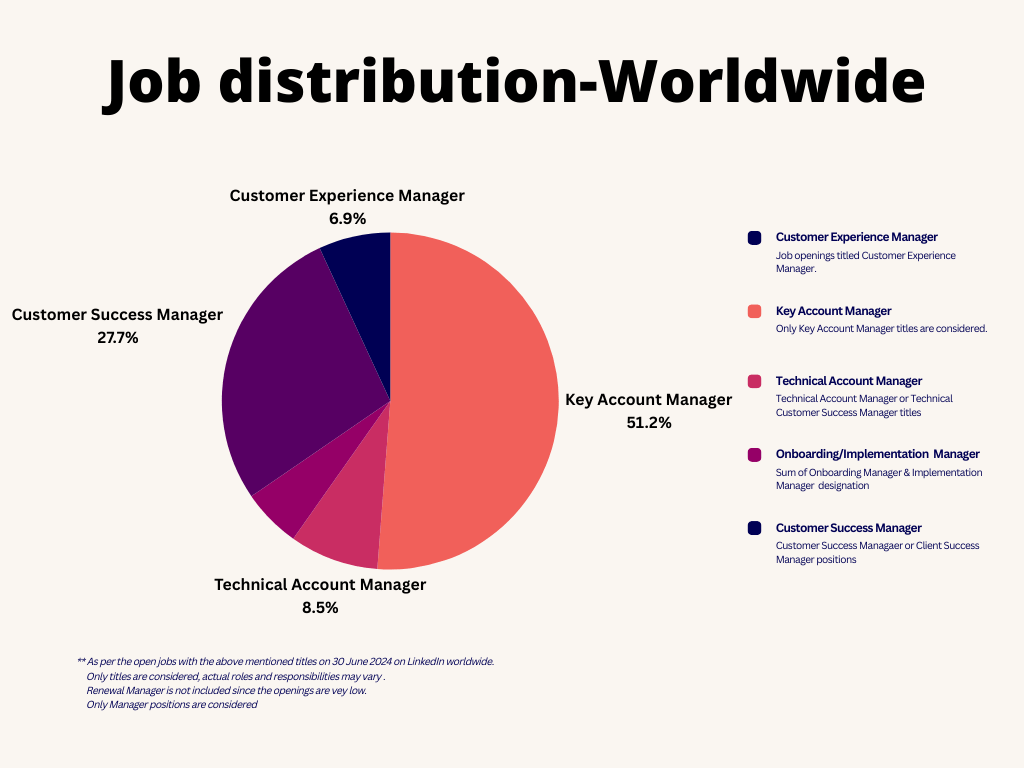
Customer Success Management: The Ultimate Game-Changer
We have discussed various post-sales roles, their responsibilities, skill requirements, and general job descriptions. Companies offer different post-sales roles to achieve specific business objectives. However, for professionals looking to acquire a wide variety of skills and experience growth, customer success is the ultimate choice. Customer success encompasses a broad range of responsibilities, making it superior to other roles in post-sales.
Author

Nabeel (Iqbal) Morgal
Dedicated management professional experienced in customer success, account management and business development with strong problem-solving skills, adept at building client relationships and collaborating in cross-functional teams. Proven ability to leverage data-driven insights, achieve business objectives, and embrace continuous skill development and innovation.

Stay ahead of the game.
Sign up to the newsletter.
Get all the hottest customer success conversations and talking points landing in your inbox once a month, every month.

